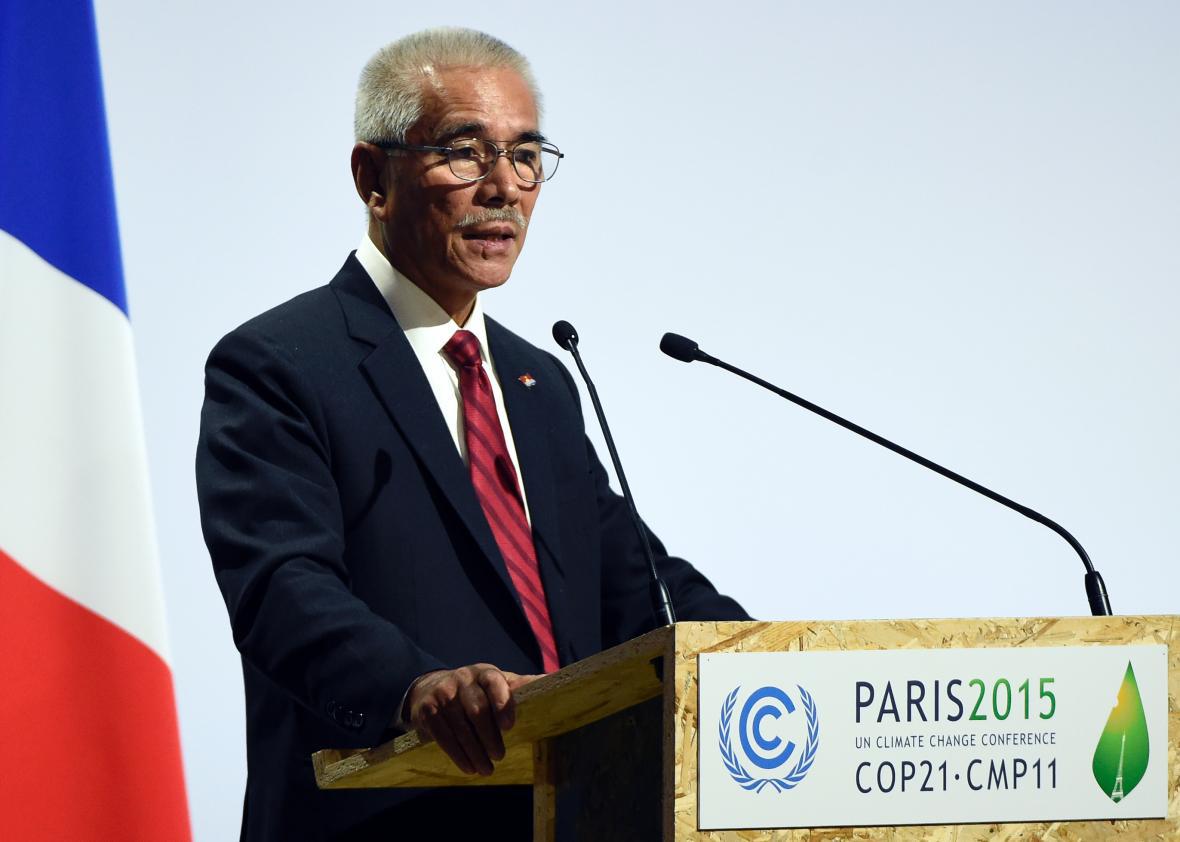As the countries most immediately vulnerable to the impact of sea level rise, small island nations have often been the most outspoken countries in the world in calling for action to address climate change. But it’s rare to hear these countries’ leaders publicly discussing the worst-case scenario: sea levels rising to the point where low lying islands become uninhabitable and entire nations need to relocate.
So it was bracing to hear Kiribati President Anote Tong, a prominent leader in the climate change debate, publicly thank the nation of Fiji in a speech at the Paris climate summit for agreeing to take in his people should the worst come to pass. “It’s so heartening to hear that Fiji has undertaken to accommodate our people of Kiribati in the event that climate change renders our homes uninhabitable,” Tong said Monday. This is not a far-fetched hypothetical. Even if major polluting nations stick to the commitments being made in Paris, the small island of Kiribati is likely to become uninhabitable in the coming decades. Other island residents, such as the former inhabitants of Papua New Guinea’s Cartaret Islands, have already had to be evacuated due to sea level rise, but the notion of relocating an entire nation is far more dramatic and historically unprecedented.*
Kiribati has a population of about 105,000 people spread over 33 islands with an average elevation of just less than 6.5 feet above sea level. Several small atolls in the country are already underwater much of the time. Tong has been working on this relocation plan for years and last year his government bought 20 square kilometers of land on the Fijian island of Vanua Levu, 2,000 kilometers away. However, it had been unclear whether Fiji’s government would agree to absorb Kiribati’s entire population, so Monday’s statement by Tong appears to be a new announcement.
Kiribati may be the first government to put a scheme like this in motion, but it’s unlikely to be the last. Former Maldives President Mohamed Nasheed, who made international headlines in 2009 for holding a cabinet meeting underwater to draw attention to the issue of sea level rise, had also sought lands for relocation, but those plans seem to be on hold since he was deposed in 2012. Most countries, publicly at least, still maintain that their nations can be preserved if there are dramatic cuts to carbon emissions and steps are taken protect their own reefs and water supplies.
Population relocation due to climate change is going to be a major global challenge in the coming century, and perhaps already is one, but few countries yet face the existential threat looming for Kiribati. That scenario presents major political challenges, both for whatever’s left of the Kiribati government after the population moves and for the nation that takes it in, and it’s long past time to start addressing them.
Read more of Slate’s coverage of the Paris climate talks.
*Correction, Nov. 30, 2015: This post originally misspelled the name of Papua New Guinea’s Cartaret Islands.
